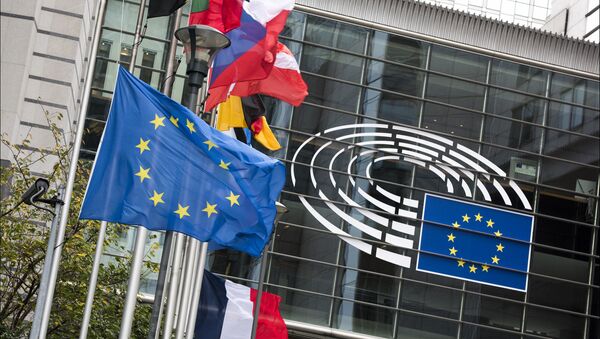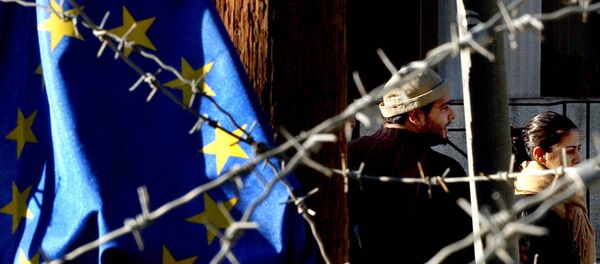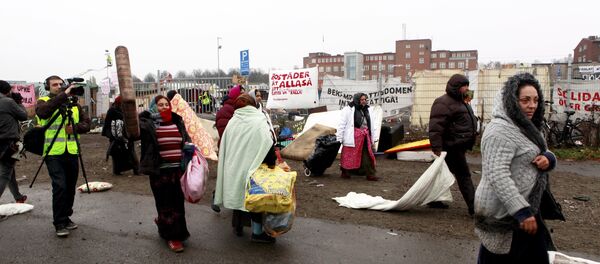In 2015 921,713 people — #refugees & #migrants — arrived in Europe by sea Via @Refugees pic.twitter.com/OOgimfaN7r
— Brendan McDonald (@7piliers) 14 декабря 2015
Though not as dire as the devastation of World War II, 2015 was still a form of hell for Europe. The bad news is, 2016 may be even worse, a Reuters columnist wrote.
According to Reuters, Europe had no events on the scale of such world-shattering episodes as the collapse of the Berlin Wall in 1989. But unlike those joyful changes, which enhanced European integration, the crises of 2015 threaten to tear the European Union apart, Reuters opined.
Two years after the fall of the Iron Curtain, the treaty to form the European Union was signed, and over the next 15 years the EU and NATO expanded toward the borders of Russia, Belarus and Ukraine.
"That appeared to confirm founding father Jean Monnet's prediction that a united Europe would be built out of crises," the article noted. "In contrast, this year's political and economic shocks over an influx of migrants, Greek debt, Islamist violence and Russian military action have led to the return of border controls in many places, the rise of populist anti-EU political forces and recrimination among EU governments."
The head of the European Commission, Jean-Claude Juncker, previously warned that the Schengen zone is at risk of dissolving, and, if inner EU borders close, the euro will not survive.
According to Reuters, Juncker's statement contradicts the motto of German Chancellor Angela Merkel; "We can do it!" Her refugee policy received little support from EU partners; most of who insisted on tightening border controls and opposing acceptance of additional asylum seekers. Often a confrontation was triggered by Merkel's economic policies and political double standards in negotiations with Russia.
"One problem likely to worsen in 2016 is that Europe's main leaders are politically weak and so preoccupied by domestic challenges that they are unable to take the necessary collective action," Reuters wrote.
The author also suggested that if Cameron wins the referendum and Britain stays in the EU under improved circumstances, there is a possibility that the leaders of other states will use the same tactics to pressure Brussels for better terms.
"Unfortunately, we need a victory for Cameron," one senior EU official said, as cited by Reuters. "But it is full of risk for Europe as a whole."





